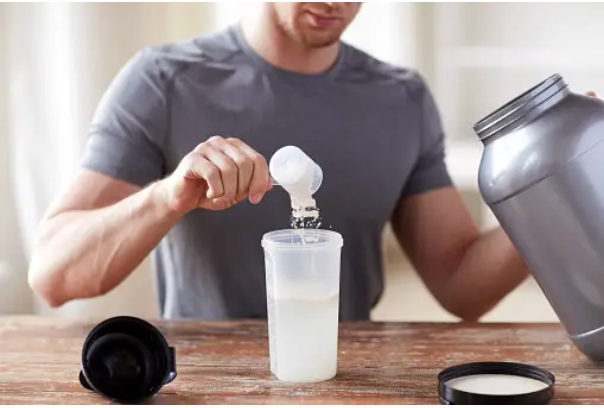HOT TAKES: Creatine!
Hey Sun Devils!
Have you ever wondered about the buzz surrounding creatine in the world of fitness or noticed friends incorporating it into their routines? What exactly is creatine, and is it a magical elixir, a secret ingredient, or just some kind of water flavoring? Join us on this journey to uncover the truth about creatine, get all your burning questions answered, and discover whether it truly lives up to the hype!
What is creatine?
Creatine is an amino acid that your kidneys and liver naturally produce after you eat protein and is found mostly in skeletal muscle cells. This natural source of energy helps your skeletal muscles contract optimally during exercise.
What foods are high in creatine?
Roughly half of the creatine your body needs come from your diet, these can be found in foods such as:
- Red meat
- Seafood
- Animal milk
Does creatine help build muscle?
When you exercise, you create micro-tears in your muscle fibers. As you rest and recover, the microfibers heal themselves, making your muscles stronger. A creatine supplement helps these micro-tears heal faster, speeding up your recovery time. Creatine helps increase the body’s ability to make energy more rapidly. For high-intensity athletes, creatine allows them to do more work and exercise, leading to greater gains in strengths, muscle mass and overall performance. Creatine itself doesn’t build muscle, it’s a helpful tool to perform for longer and with more intensity.
Is creatine safe and healthy to use?
Generally, creatine is safe to use. Just like any dietary supplement, it’s important to find quality products and see how your body reacts to them at first before continuing their use long-term.
What kinds of creatine supplements are there?
- Powders
- Tablets
- Capsules
- Liquids
- Energy bars
Should I take creatine everyday?
Everyone’s body is different and has its own needs, but the recommended amount is 5 to 3 grams of creatine per day to maintain muscle stores. The amount is consistent for both men and women, but if you want to increase your supplement dosage contact your healthcare provider to make sure it’s the right choice for you.
What are the short and long term effects?
It is normal to gain a bit of water weight when you first start taking creatine. This is your body’s way of pulling more water into your muscle cells to make them bigger and fuller. This is why it’s important to stay well hydrated when starting creatine supplements and exercising.
After the initial short-term water retention, the gains will come. A good guide to creatine is: if you put in the hard work at the gym, the creatine will fuel greater gains. If your activity levels are low, then muscle building will also be minimal.
Can vegans and vegetarians use creatine supplements?
Dietary intake of creatine is reduced in vegetarians and vegans because creatine is naturally found in animal tissues. However, the creatine in most supplements is synthesized using sarcosine and cyanamide (the two main chemical components in creatine), which does not contain animal products. This makes creatine “vegan-friendly” and a great way of increasing the body’s supply of creatine.
Final Thoughts…
Creatine has been extensively studied for its potential benefits in exercise, training, and sports, and each year brings fresh insights into its advantages and potential drawbacks. Ultimately, the key is to prioritize your comfort when considering any health supplement.
Remember, building muscle doesn't hinge on creatine. The foundation for muscle growth lies in maintaining a sound exercise routine, proper nutrition, and quality sleep. However, for those seeking enhanced results, creatine can be a valuable ally, offering support on your fitness journey.
We hope you've enjoyed this exploration into the world of creatine, and that you've gained valuable insights to make an informed choice. Whether you decide to incorporate creatine into your routine or not, remember that your well-being is what matters most. Here's to your journey to Live Well!
If you're curious about this subject, feel free to use these links as references.
- https://pubchem.ncbi.nlm.nih.gov/compound/Creatine#section=Uses
- https://my.clevelandclinic.org/health/treatments/17674-creatine
- https://www.healthline.com/nutrition/10-benefits-of-creatine
- https://www.mayoclinic.org/drugs-supplements-creatine/art-20347591
- https://www.ncbi.nlm.nih.gov/pmc/articles/PMC7910963/
- https://www.ncbi.nlm.nih.gov/pmc/articles/PMC7246861/
Disclaimer: The information and other content provided in this blog, website or in any linked materials are not intended and should not be considered, or used as a substitute for, medical advice, diagnosis or treatment.
